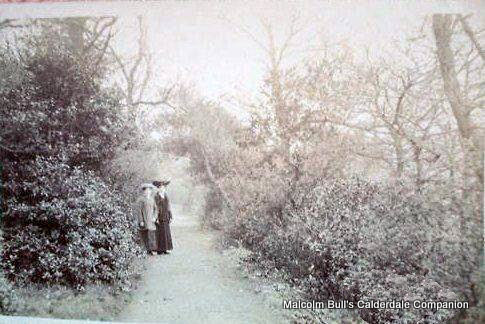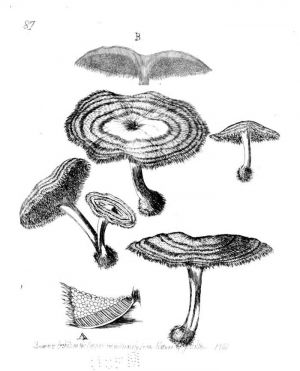1788 - Bolton, James - History of Fungusses growing about Halifax: Difference between revisions
From International Robin Hood Bibliography
m (Text replacement - "=== Allusion ===" to "== Allusion ==") |
m (Text replacement - "=== Lists ===" to "== Lists ==") |
||
| Line 14: | Line 14: | ||
In 1797 a German translation of Bolton's book was published (see Sources section below). It is a classic in British mycology. | In 1797 a German translation of Bolton's book was published (see Sources section below). It is a classic in British mycology. | ||
== Lists == | |||
* Not included in {{:Dobson, Richard Barrie 1976a}}, pp. 315-19. | * Not included in {{:Dobson, Richard Barrie 1976a}}, pp. 315-19. | ||
* Outside scope of {{:Sussex, Lucy 1994a}}. | * Outside scope of {{:Sussex, Lucy 1994a}}. | ||
Revision as of 12:49, 28 July 2018
Approximate location of Robin Hood's Scar.

Strollers in Elland Park Wood, early 1900's postcard / Scanned by David Greaves for Malcolm Bull's Calderdale Companion.
By Henrik Thiil Nielsen, 2016-12-10. Revised by Henrik Thiil Nielsen, 2018-07-28.
Allusion
It [sc. woolly boletus] is a rare plant here. The specimen from which this description and these figures are taken, grew in Robin Hood's Scar, in Southowram, near Halifax, in September, 1784.[1]
Source notes
Italics as in printed source.
IRHB comments
In 1797 a German translation of Bolton's book was published (see Sources section below). It is a classic in British mycology.
Lists
- Not included in Dobson, R. B., ed.; Taylor, J., ed. Rymes of Robyn Hood: an Introduction to the English Outlaw (London, 1976), pp. 315-19.
- Outside scope of Sussex, Lucy, compil. 'References to Robin Hood up to 1600', in: Knight, Stephen. Robin Hood: A Complete Study of the English Outlaw (Oxford, UK; Cambridge, Massachusetts: Blackwell, 1994), pp. 262-88.
Sources
- Bolton, James. An History of Fungusses, Growing about Halifax (Halifax; London; Oxford; Cambridge; York; Edinburgh; Huddersfield; Leeds, 1788-91), p. 87 and plate 87.
- Bolton, Jacob; Willdenow, Carl Ludwig, transl. Jacob Boltons Geschichte der Merkwürdigsten Pilze (Berlin, 1797), p. 65.
Notes

